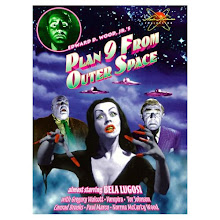by Jason Pyles
Some films simply defy the imposition of a critical voice. I believe “Mysterious Skin” is one such rare film. And yet I brazenly proceed, because it’s my unholy duty (albeit self-appointed, on this site) as a film critic.
Unless one is careful, critiquing a film that tries to communicate such sober themes can trivialize the weighty matters at hand in order to nitpick — or praise — its execution. For example, after being utterly blown away by the emotional power and devastating nature of “Mysterious Skin,” I opted to watch the theatrical trailer on the DVD. (It can also easily be seen at IMDb.com.)
As is common with critically celebrated films, the preview boasted favorable comments from prominent film critics, including this phrase from the New York Times’ A.O. Scott: “...a remarkably poised performance by Joseph Gordon-Leavitt.” I agree with Scott’s description of Gordon-Leavitt’s acting, but the more I thought about it, the more I felt that any cleverly written observation I or any other critic could devise would only make noise where there should be silence. A pensive, reflective silence.
“Mysterious Skin” is so unsettling and upsetting, it almost seems like one should observe some sort of quiet moment of respect for the countless abused victims this film bleeds for, before tearing in to an assessment of it. And now, having taken such precautions, I will proceed:
Though it never explicitly or graphically depicts the actual child abuse scenarios, “Mysterious Skin” is disturbing because it places us on the inside of the crimes, and to some degree, in the mind of the abuser. The film’s concluding revelations — which are primarily verbal descriptions — are nearly unbearable. It’s no wonder some children “go away,” mentally, to escape the experience when such things occur. I felt myself wanting to “escape the film.”
Actually, this sense of spectator resistance reminds me of bell hooks’ concept, “the oppositional gaze.” She wrote an essay called “The Oppositional Gaze: Black Female Spectators.” It focuses on black women’s tendency, generally speaking — according to hooks — to eschew terrible portrayals of black women, or an altogether lack of portrayal of black women, in film. And though I had a film professor once scold me for suggesting that I, a white male, had ever experienced spectator’s resistance or something akin to the oppositional gaze, I still believe that even a white male like me can want to escape unthinkable themes and depictions in movies, even if they don’t coincide with the plight of African-American women in the cinema.
Another unforgettable scene in “Mysterious Skin,” unlike any I’ve ever experienced in the cinema, is a situation where the young Neil preys upon some poor kid on Halloween, sending off fireworks from his face, then proceeds to “appease” him afterward, as a sort of sick consolation. I was utterly horrified and repulsed by this scene, which was no doubt the intention.
Also, it is clear that either Scott Heim, the author of the novel this movie is adapted from, or director Gregg Araki — or both — went to great lengths not to suggest that Neil’s molestation led to his homosexuality. Indeed, before the abuse ever begins, the film lets us know (though it seems unlikely, according to my memory) that Neil has a significant sexual appetite as a biologically young boy. On this point, I think the film was too heavy-handed in establishing Neil’s intense desire for other males.
And finally, many films have addressed prostitution, and many of them have done it irresponsibly. But the responsible portrayals, such as the one in “Mysterious Skin,” reinforce the perils of such a profession. From what I understand (though I admit I have never worked in such a field), films that show brutal encounters when the working gal (or guy) is ravished are conveying an accurate, fairly common occupational hazard. “Monster” is another example, with a twist.
Moral of this story: Stop pedophilia and prostitution. Sure, but I’m afraid it’s much more complicated than that, which is why “Mysterious Skin” aims to stir and afflict its viewers. It succeeds.






























































3 comments:
I've never heard of the term "opposition gaze" before. Can you direct me to a synopsis of it? I couldn't find anything.
Yes, oppositional gaze is discussed either in a chapter or essay by bell hooks, though I'm not sure if she originally coined the phrase. I studied it as part of my senior thesis on film, but you can read it here; just copy and paste this URL: http://www.umass.edu/afroam/downloads/reading14.pdf
Jason
P.S. If your computer blocks out the end of the address (like mine does), the end is ...reading14.pdf
Post a Comment